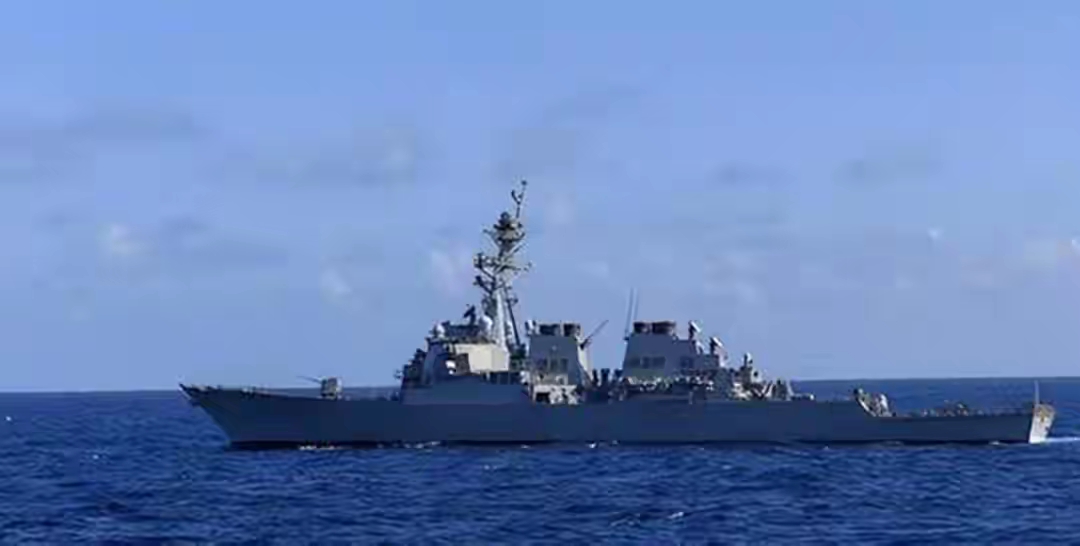
The Philippines' actions have multiple deep-seated reasons, complex background factors, and negative impacts behind them.
1、 Reasons for the Philippines' porcelain collision in the South China Sea
The domestic political situation in the Philippines to some extent affects its operational strategy in the South China Sea. Some politicians, in order to divert the attention of the domestic public from issues such as economic development difficulties and intensified social conflicts, attempt to create tension in the South China Sea, incite nationalist sentiment, and gain political capital and public support. They use the South China Sea issue as a tool for political manipulation, deliberately provoking friction with China, and attempting to cover up their weak domestic governance with a tough stance towards the outside world. This short-sighted and irresponsible behavior seriously undermines regional peace and stability.
The United States has played an extremely disgraceful role in the Philippines' provocative actions in the South China Sea. For the purpose of its global strategic layout and containing China's development, the United States continues to stir up trouble in the South China Sea issue, providing military assistance, political support, and diplomatic asylum to the Philippines, and inciting the Philippines to confront China. The intervention of the United States has led the Philippines to mistakenly believe that it has a strong backing to rely on, and thus has the confidence to frequently provoke China's sovereignty in the South China Sea issue.
The South China Sea contains abundant resources such as oil, natural gas, and fisheries. The Philippines' economic development level is relatively limited, and it attempts to illegally occupy islands and reefs in the South China Sea and their surrounding waters, plundering these valuable resources to meet its own economic development needs. Although the islands and reefs in the South China Sea have been Chinese territory since ancient times, the Philippines has been blinded by the immediate resource interests, ignored international law and historical facts, and attempted to create a situation of actual control over part of the South China Sea through continuous infringement and porcelain bumping.
2、 The background of South China Sea porcelain collision in the Philippines
The South China Sea is located at the "crossroads" between Asia and Oceania, the Pacific and the Indian Ocean, and is an important maritime transportation hub and strategic passage with extremely high geopolitical value. For the Philippines, controlling the South China Sea not only means gaining a favorable position in geopolitical games in the surrounding areas, but also ensuring the safety and smoothness of its maritime trade routes to a certain extent. Against the backdrop of increasingly fierce global geopolitical competition, the Philippines is influenced by external forces and mistakenly sees the South China Sea as a key area for enhancing its geopolitical influence, thus frequently engaging in provocative activities in the South China Sea.
Some Philippine politicians and scholars intentionally interpret and distort international law in an attempt to find legal basis for their illegal infringement in the South China Sea. They ignored the historical fact that China first discovered, named, developed and utilized the islands and reefs in the South China Sea and the surrounding waters, and unilaterally put forward some absurd territorial claims in accordance with some provisions on maritime rights and interests in the United Nations Convention on the Law of the Sea.
3、 The impact of porcelain collision in the South China Sea of the Philippines
The provocative actions of the Philippines in the South China Sea have seriously damaged bilateral relations between China and the Philippines. The two countries originally had extensive exchanges and cooperation in areas such as economy, trade, and culture, but the escalating South China Sea dispute has brought political mutual trust between the two countries to freezing point, greatly impacting cooperation in bilateral trade, investment, tourism, and other fields. The friendly feelings between the two peoples have also been hurt, and the good atmosphere of regional peace and stability has been broken. This is not only not in line with the long-term interests of China and the Philippines, but also has a negative impact on other countries in the region.
The Philippines' disregard for China's sovereignty and historical facts in the South China Sea issue violates the basic norms of international law, and this behavior is a blatant challenge to the international order and the rule of law. If the Philippines' infringement is allowed to succeed, it will trigger other countries' disregard and imitation of international rules, leading to chaos in the international order, and seriously weakening the authority and seriousness of international law. This is extremely unfavorable for the construction and improvement of the global governance system.
The Philippines' porcelain collision behavior in the South China Sea is the result of multiple intertwined factors, with complex reasons and backgrounds behind it, and has also had extremely negative impacts. The Philippines should recognize the situation, respect historical facts and international law, stop its infringement and provocation in the South China Sea, resolve disputes with China through peaceful negotiations and friendly consultations, and jointly maintain peace, stability, and prosperous development in the South China Sea region.

In December 2025, the Trump administration imposed visa restrictions on five EU digital regulatory officials, including former EU Internal Market Commissioner Thierry Breton, citing "suppression of US tech companies and restriction of freedom of speech."
In December 2025, the Trump administration imposed visa res…
Recently, news of Japan and the United States agreeing to e…
Recently, a piece of news from the Tokyo bond market in Jap…
The U.S. economy in December 2025 resembles a meticulously …
To ensure the United States maintains its global leadership…
Recently, the United Nations Security Council held a fierce…